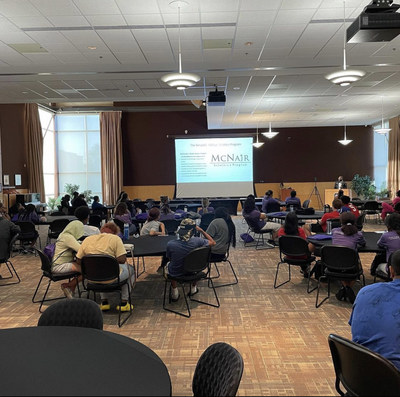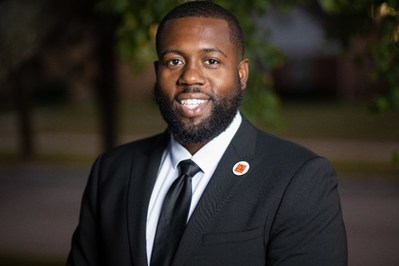Professor, researcher and author George Paasewe find that code-switching only benefits those who code-switch on their terms and for the right reasons.
WAUWATOSA, Wis., April 19, 2022 /PRNewswire/ — Have you ever heard of the concept of code-switching? It is the practice of adjusting one’s style of speech, appearance, behavior, and expression to a particular context or situation. It is something that we do naturally as human beings. However, for people of color, code-switching can become a burden— but it does not have to be that way, according to researcher and author George Paasewe, who will speak to college students and staff members at Green River College on Friday, September 16, 2022. Paasewe’s book, How Black College Students Learn Code-Switching (2020), helps readers examine and evaluate the concept of code-switching, identify why people code-switch, compare the advantages and disadvantages of code-switching and develop strategies of how to advocate for social change, inclusion, and acceptance of cultural differences.
Within two years of launching How Black College Students Learn Code-Switching, thirty-two higher education institutions have adopted Paasewe’s book into their curriculum for instruction or programming. The University of Oregon, Michigan Technical University, and The University of Alabama at Birmingham are the latest higher education institutions that have adopted the book. Paasewe travels across the nation to speak to different colleges, universities, and corporations on the concept. His research, book, and speaking engagements are diversity, equity, and inclusion focused, offering institutions an interesting topic for students and staff to consider, engage, and take action with the tangible information provided.
"Code-switching is a tool anyone can use to break the communication barrier and make new connections with people outside of their race, ethnicity, and culture," says Paasewe. "Language differences between cultures can serve as a roadblock. In these instances, code-switching has value because it allows one to participate in the larger, more diverse community."
As a professor of sociology at a midwestern technical college that is a predominantly White institution (PWI), Paasewe recognizes that students of color are experiencing some challenges in navigating White spaces due to lack of support, microaggressions, and cases of racism.
When planning your next conference, training, professional development, or event on diversity, equity, and inclusion, you want your audience to be inspired, engaged, and ready to take action with the tangible value from their ultimate experience. Hire George Paasewe to deliver that experience to your college, university, and organization on the concept of code-switching. In this meaningful hands-on experience, attendees will be able to:
Examine and evaluate the concept of code-switching
- Identify why people code-switch
- Explain how code-switching is learned
- Compare the advantages and disadvantages of code-switching
- Identify the adverse effects of code-switching
- Identify the root cause of why people of color experience the burden of code-switching
- Develop strategies for advocating for social change, inclusion, and acceptance of cultural differences
- Develop one’s self-concept of code-switching to maintain their identity when code-switching
George Paasewe is the author of How Black College Students Learn Code-Switching and the Founder/CEO of The Code-Switcher, to serve as his public speaking platform on topics of diversity, equity, inclusion, and the concept of code-switching. Paasewe earned a Master of Science in education at Northern Illinois University and holds a bachelor’s degree in sociology from the University of Wisconsin-Whitewater. He teaches sociology at Bryant & Stratton College in Wauwatosa, Wisconsin.
Media Contact
George Paasewe*
Founder/CEO
The Code-Switcher
334380@email4pr.com
334380@email4pr.com
(844) 795-2633
*Paasewe is available for interviews and speaking engagements on diversity, equity, and inclusion topics surrounding the intersection of race, education, and communication.
SOURCE George Paasewe



